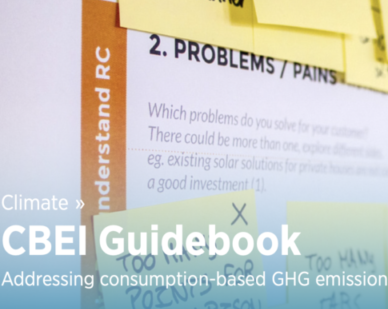Overview
Over 80% of emissions in cities can be attributed to consumption-based emissions—also known as scope 3 emissions—the result of activitiesgoods and services produced and often disposed of elsewhere yet consumed within city borders.
Electronics, fashion, and food system value chains span vast geographies, reaching well beyond the purview of municipal governance. It’s often less evident how cities can track, influence and demonstrate success in reducing emissions generated across such complex value chains. Yet CNCA members are increasingly taking this challenge on through new climate actions that disrupt the status quo in favor of solutions that embrace principles of climate justice and move towards circular design, regenerative production and sustainable consumption.
CNCA’s Contribution
CNCA is leveraging the momentum gathering around cities’ scope 3 work to accelerate best practices through original research, facilitating peer learning cohorts, and supporting ambitious projects through the CNCA Game Changer Fund. Examples of CNCA-funded projects that contribute to this new body of knowledge follow below.
Many strategies for high-impact scope 3 systems change overlap across CNCA’s portfolio of efforts. To find out more, explore CNCA’s work in:






